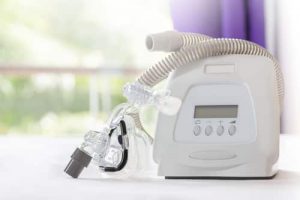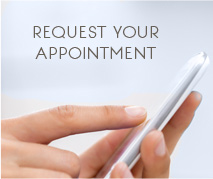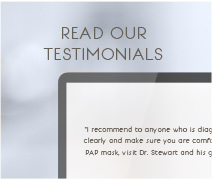 Without treatment, sleep apnea can lead to a greater risk of high blood pressure, stroke, and heart attack. Often, we recommend a continuous positive airway pressure machine, or CPAP, to treat the issue. How does a CPAP machine work?
Without treatment, sleep apnea can lead to a greater risk of high blood pressure, stroke, and heart attack. Often, we recommend a continuous positive airway pressure machine, or CPAP, to treat the issue. How does a CPAP machine work?
Try Our Quiz on the CPAP Machine
- True or False: Snoring can be a warning sign.
- True or False: The CPAP machine prevents obstruction of airflow.
- True or False: We will help you choose the best fitting mask.
- True or False: We may combine treatment with an oral appliance.
Answer Key
- True. Snoring, as well as episodes of waking suddenly gasping for air or choking, dry mouth, moodiness, and daytime drowsiness, can be signs that you may need treatment for sleep apnea. If one or more of these possible warning signs sounds familiar, then please contact our office today for a diagnosis.
- True. The machine consists of a mask connected to a device via a plastic hose. The device pumps air through the hose and into the mask. Patients enjoy uninterrupted breathing, preventing apneic episodes throughout the night.
- True. Often, people complain about the treatment for being uncomfortable and a hindrance to good sleep. We’ve found that much of this stems from the mask. Fortunately, we can help you choose a mask that is a comfortable fit and the right choice for your specific sleep apnea case.
- True. We may also recommend an oral appliance, which fits like a nightguard and is worn at night. The appliance actually moves the jaw forward enough to keep airways open and prevent soft tissue collapse during sleep. If you have any questions about the CPAP machine or our oral appliances, then please contact our office today.
Do You Want to Learn More About Treating OSA?
At James Stewart, DDS, our team can recommend treatment options to help you sleep better. Dr. Stewart and our compassionate staff serve patients of all ages from Livonia, MI, as well as Farmington Hills, Farmington, Plymouth, Northville, Novi, Dearborn Heights, Dearborn, Garden City, Westland, Redford, and the surrounding communities. To schedule a consultation, call our office today at (734) 425-4400.






